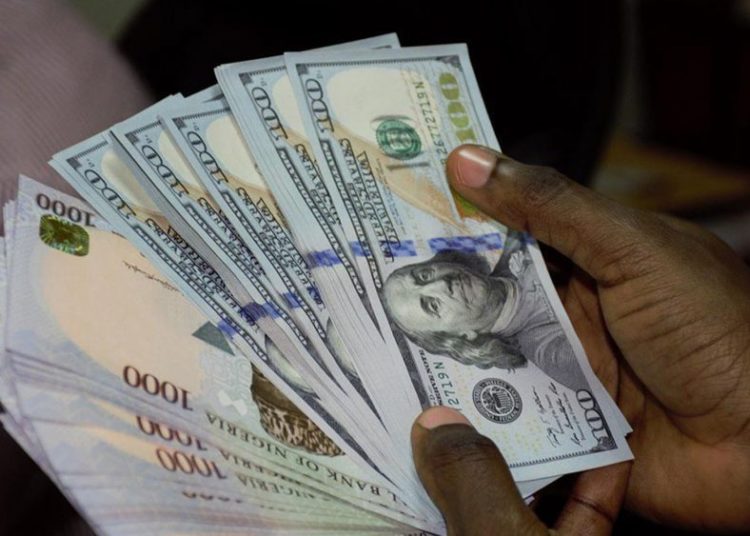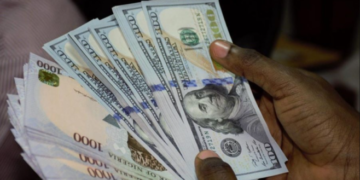Sustained improvement in liquidity and external reserves has boosted the value of the naira to its highest level in the last six months.
The naira climbed to a six-month high of N1,514.86 per dollar at the official foreign exchange (FX) market on Thursday. The last time the naira traded stronger than this was on March 6, 2025, when it appreciated to N1,512.30 per dollar in the official market.
At the Nigerian Foreign Exchange Market (NFEM), the naira appreciated by N6.59 or 0.4 per cent to close at N1,514.86 on Thursday, the final trading day of the week, due to a public holiday declared by the federal government. It had closed at N1,521.45 the previous day, according to data from the Central Bank of Nigeria (CBN).
In the parallel market, also known as the black market, the naira held steady at N1,535 per dollar. GTBank quoted an exchange rate of N1,533 per dollar for international transactions on Thursday, slightly down from N1,534 on Wednesday.
Nigeria’s foreign currency reserves stood at $41.30 billion as of September 4, 2025, slightly down from a four-year high of $41.49 billion on September 3, 2025, according to CBN data.
Total FX inflows into the Nigerian economy rose 4 percent quarter-on-quarter (q/q) and 26 percent year-on-year (y/y) to $29 billion in Q1 2025. This continued a trend observed since Q4 2023, driven largely by the CBN’s tight monetary policies.
However, FX outflows increased at a faster pace, rising 14 percent q/q and 33 percent y/y to $13.8 billion, marking the highest quarterly outflow since Q2 2020. As a result, net FX flows stood at $15.2 billion in Q1 2025, slightly below the $15.8 billion recorded in Q4 2024.
Analysts at FBNQuest noted that strong FX inflows in Q1 2025 were mainly from autonomous sources, which surged to $20.7 billion from $16.3 billion in Q4 2024 the highest since the COVID-19 pandemic, though still below the $27.5 billion seen in Q1 2020.
This increase in autonomous inflows was attributed to high market interest rates, which attracted carry trade flows, and FX market reforms by the CBN, which improved transparency and price discovery. FMDQ data showed foreign portfolio investment (FPI) inflows rose 40 per cent q/q and 101 percent y/y to $4.9 billion.
FX inflows through the CBN fell to $8.3 billion from $11.5 billion in Q4 2024.
On the outflows side, CBN-related FX outflows remained stable at $10.5 billion, accounting for 77 percent of total outflows. This was largely driven by a 29 per cent y/y increase in external debt service payments, which reached $1.4 billion. Meanwhile, autonomous FX outflows rose sharply by 125 per cent q/q to $3.2 billion.
The significant growth in autonomous inflows, supported by CBN reforms, has contributed to relative exchange rate stability in 2025, with the naira mostly trading between N1,500 and N1,600 per dollar.





